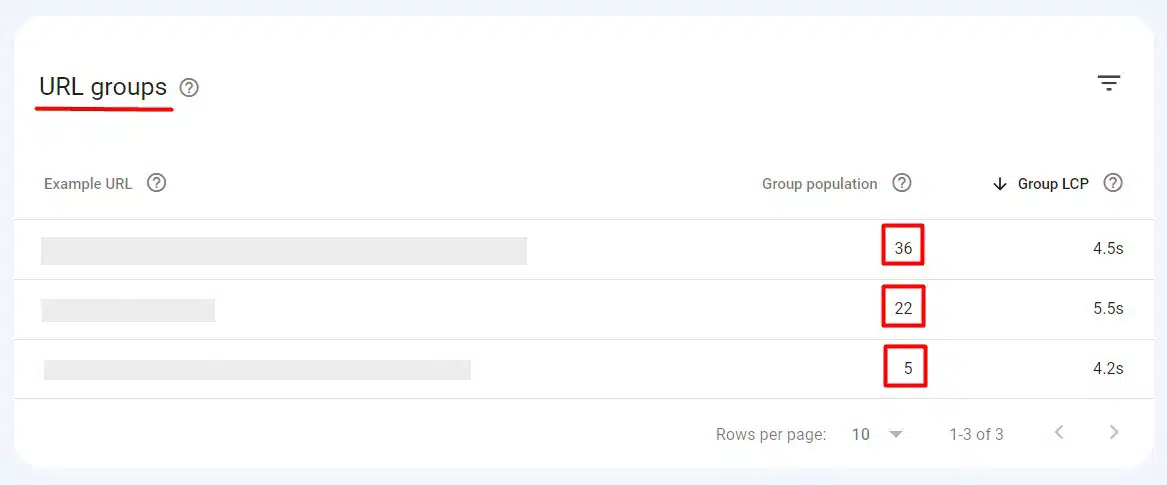Core Web Vitals URL Grouping: Rankings Affected.
Did you know that a single slow page on your website could negatively affect your website’s SEO? Google’s Core Web Vitals was the hot topic in SEO between late 2020 and spring of 2021. The search engine company had announced it was rolling out a page experience signals update called “Core Web Vitals” that could affect the rankings of web pages based on their User Experience signals —namely the web page’s speed. Fast-forward to today, the Core Web Vital system has been updated, and one of the newer (and sneakier) updates can give a single slow page on your website the power to take down many others with it. Cue: URL Grouping, as seen in Search Console.
 It’s not efficient for Google to crawl every single page on the internet individually and put each one through a speed and UX test.
Instead, it uses AI to help it identify page templates within a website. It crawls a few pages of the site, and page structures that look familiar are assessed as a group.
So if page A has a similar code structure to page B, C, D, E, F, G, H, I and J, and page A is slow — all of the pages must be slow. Google’s logic.
We believe in a holistic SEO approach to tackle this.
Your digital marketing and sales start at a very technical level: the server your platform is hosted on, the speed and reliability of the technology that connects your users to your domain, your design, your codebase, your technical SEO, and the user experience your platform provides.
These should be the base you build your digital marketing strategy on.
All of our websites at Fuelist Digital are built from the ground up to pass the Core Web Vital assessments, and not just for the search engine. Speed and UX means something for our customers’ users too.
We understand what search engines like Google are trying to achieve: better quality recommendations results for their users —and a faster website with a better user experience is a better quality recommendation.
It’s not efficient for Google to crawl every single page on the internet individually and put each one through a speed and UX test.
Instead, it uses AI to help it identify page templates within a website. It crawls a few pages of the site, and page structures that look familiar are assessed as a group.
So if page A has a similar code structure to page B, C, D, E, F, G, H, I and J, and page A is slow — all of the pages must be slow. Google’s logic.
We believe in a holistic SEO approach to tackle this.
Your digital marketing and sales start at a very technical level: the server your platform is hosted on, the speed and reliability of the technology that connects your users to your domain, your design, your codebase, your technical SEO, and the user experience your platform provides.
These should be the base you build your digital marketing strategy on.
All of our websites at Fuelist Digital are built from the ground up to pass the Core Web Vital assessments, and not just for the search engine. Speed and UX means something for our customers’ users too.
We understand what search engines like Google are trying to achieve: better quality recommendations results for their users —and a faster website with a better user experience is a better quality recommendation.